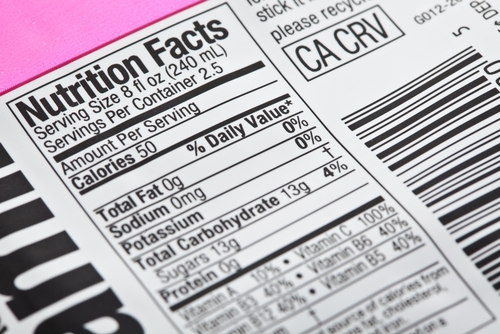 According to an article due to be published in Life Extension Magazine, a new study has showed that consuming carbohydrates dramatically increases the risk of developing breast cancer.
According to an article due to be published in Life Extension Magazine, a new study has showed that consuming carbohydrates dramatically increases the risk of developing breast cancer.
The study, entitled, “Carbohydrates and the Risk of Breast Cancer among Mexican Women” and published in the Cancer Epidemiology, Biomarkers and Prevention journal, showed that postmenopausal women with previous breast cancer were two times more likely to have recurrence if their carbohydrate intake remained stable or increased after surgery. Furthermore, among carbohydrate components, the strongest associations were observed for sucrose and fructose and no association was observed with total fat intake.
“There is growing interest among the scientific community in the relationship between carbohydrate consumption and cancer, with a special focus on breast cancer. High-carbohydrate diets produce chronic elevations of insulin as the body tries to deal with the excess sugar. Because insulin is a growth factor, elevated insulin levels represent a potential breast cancer threat because it appears to stimulate breast cancer cells to grow and reproduce”, Michael A. Smith, M.D. and senior health scientist for Life Extension Magazine said in a PR Newswire press release.
It has been known for sometime that a diet high in readily digested carbohydrates has a strong association with increased cancer risks, and women who consume high levels of hyperglycemic foods suffer a 57% increased risk of developing breast cancer, especially if they are overweight or obese.
For example, white rice is the primary carbohydrate source for Asian women, who are 19% more likely to develop breast cancer when compared to those ingesting brown rice, a slower-digesting starch that instead, decreases the probabilities of developing breast cancer by 24%.
[adrotate group=”3″]
Glycemic load and total carbohydrate consumption not only increase the level of breast cancer development, but are also associated with one of the most aggressive types of breast cancer, triple negative breast cancer lacking estrogen and progesterone receptors. This subtype of breast cancer does not respond to hormonal therapy such as tamoxifen or aromatase inhibitors, or therapies that target HER2 receptors, such as Herceptin, making it a difficult cancer to treat.
The most efficient way to reduce cancer-associated carbohydrate consumption is to have a diet high in fiber and use specific nutrients that limit or slow starch breakdown in the intestine, reducing blood sugar levels and insulin levels.
Nonetheless, the relation between carbohydrates and breast cancer needs to be further investigated, especially in populations particularly susceptible to insulin resistance.

